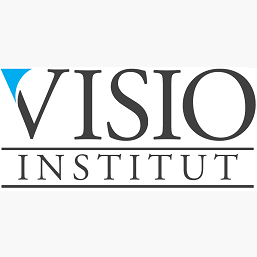Turkey enters the Nanny State Index at number one with a bullet. With high scores in every category, and the highest scores for over-regulation of alcohol and vaping, it towers over its rivals in the most illiberal way.
Under the autocratic rule of the staunch teetotaller, Recep Tayyip Erdoğan, Turkey has gone to war on alcohol, tobacco, vaping, and soft drinks. E-cigarettes and heated tobacco products are banned outright, although, surprisingly, snus is legal. Bars and restaurants can serve alcohol 24 hours a day but the drinks are highly taxed.
Cigarettes have to be sold in plain packaging, tobacco cannot be displayed in shops, and cigarette vending machines are prohibited. The age at which people can buy cigarettes was raised to 21 in 2018. Smoking is banned in all workplaces, bars, and restaurants without exception. Since 2019, smoking has been banned in all vehicles, even if nobody else is in them.
Turkey’s raft of sin taxes might seem modest to foreign tourists but once adjusted for average incomes, they are highly punitive. Even in cash terms, its taxes on beer and spirits are higher than those in countries such as Denmark and the UK. In early 2022, with inflation soaring, Turkey’s ‘Special Consumption Tax’ increased the duty on alcoholic drinks and tobacco products by 47 per cent overnight.
The sale of energy drinks is banned for people under the age of 18. A tax on sugary drinks amounts to €0.17 per litre and also applies to artificially sweetened drinks.
With thanks to Çağın T. Eroğlu and İsrafil Özkan, Freedom Research Association
About
The Nanny State Index (NSI) is a league table of the worst places in Europe to eat, drink, smoke and vape. The initiative was launched in March 2016 and was a media hit right across Europe. It is masterminded and led by IEA’s Christopher Snowdon with partners from all over Europe.
Enquiries: info@epicenternetwork.eu
Download Publication
Previous versions: 2021, 2019, 2017
Categories
About the Editor
Christopher Snowdon is the head of Lifestyle Economics at the Institute of Economic Affairs. His research focuses on lifestyle freedoms, prohibition and policy-based evidence. He is a regular contributor to the Spectator, Telegraph and Spiked and often appears on TV and radio discussing social and economic issues.
Snowdon’s work encompasses a diverse range of topics including ‘sin taxes’, state funding of charities, happiness economics, ‘public health’ regulation, gambling and the black market. Recent publications include ‘Drinking, Fast and Slow’, ‘The Proof of the Pudding: Denmark’s Fat Tax Fiasco’, ‘A Safer Bet’, and ‘You Had One Job’. He is also the author of ‘Killjoys’ (2017), ‘Selfishness, Greed and Capitalism’ (2015), ‘The Art of Suppression’ (2011), ‘The Spirit Level Delusion’ (2010), ‘Velvet Glove, Iron Fist’ (2009).
Turkey 2023
Turkey enters the Nanny State Index at number one with a bullet. With high scores in every category, and the highest scores for over-regulation of alcohol and vaping, it towers over its rivals in the most illiberal way.
Under the autocratic rule of the staunch teetotaller, Recep Tayyip Erdoğan, Turkey has gone to war on alcohol, tobacco, vaping, and soft drinks. E-cigarettes and heated tobacco products are banned outright, although, surprisingly, snus is legal. Bars and restaurants can serve alcohol 24 hours a day but the drinks are highly taxed.
Cigarettes have to be sold in plain packaging, tobacco cannot be displayed in shops, and cigarette vending machines are prohibited. The age at which people can buy cigarettes was raised to 21 in 2018. Smoking is banned in all workplaces, bars, and restaurants without exception. Since 2019, smoking has been banned in all vehicles, even if nobody else is in them.
Turkey’s raft of sin taxes might seem modest to foreign tourists but once adjusted for average incomes, they are highly punitive. Even in cash terms, its taxes on beer and spirits are higher than those in countries such as Denmark and the UK. In early 2022, with inflation soaring, Turkey’s ‘Special Consumption Tax’ increased the duty on alcoholic drinks and tobacco products by 47 per cent overnight.
The sale of energy drinks is banned for people under the age of 18. A tax on sugary drinks amounts to €0.17 per litre and also applies to artificially sweetened drinks.
With thanks to Çağın T. Eroğlu and İsrafil Özkan, Freedom Research Association
 Austria
Austria Belgium
Belgium Bulgaria
Bulgaria Croatia
Croatia Cyprus
Cyprus Czech Republic
Czech Republic Denmark
Denmark Estonia
Estonia Finland
Finland France
France Germany
Germany Greece
Greece Hungary
Hungary Ireland
Ireland Italy
Italy Latvia
Latvia Lithuania
Lithuania Luxembourg
Luxembourg Malta
Malta Netherlands
Netherlands Norway
Norway Poland
Poland Portugal
Portugal Romania
Romania Slovakia
Slovakia Slovenia
Slovenia Spain
Spain Sweden
Sweden Turkey
Turkey United Kingdom
United Kingdom
















